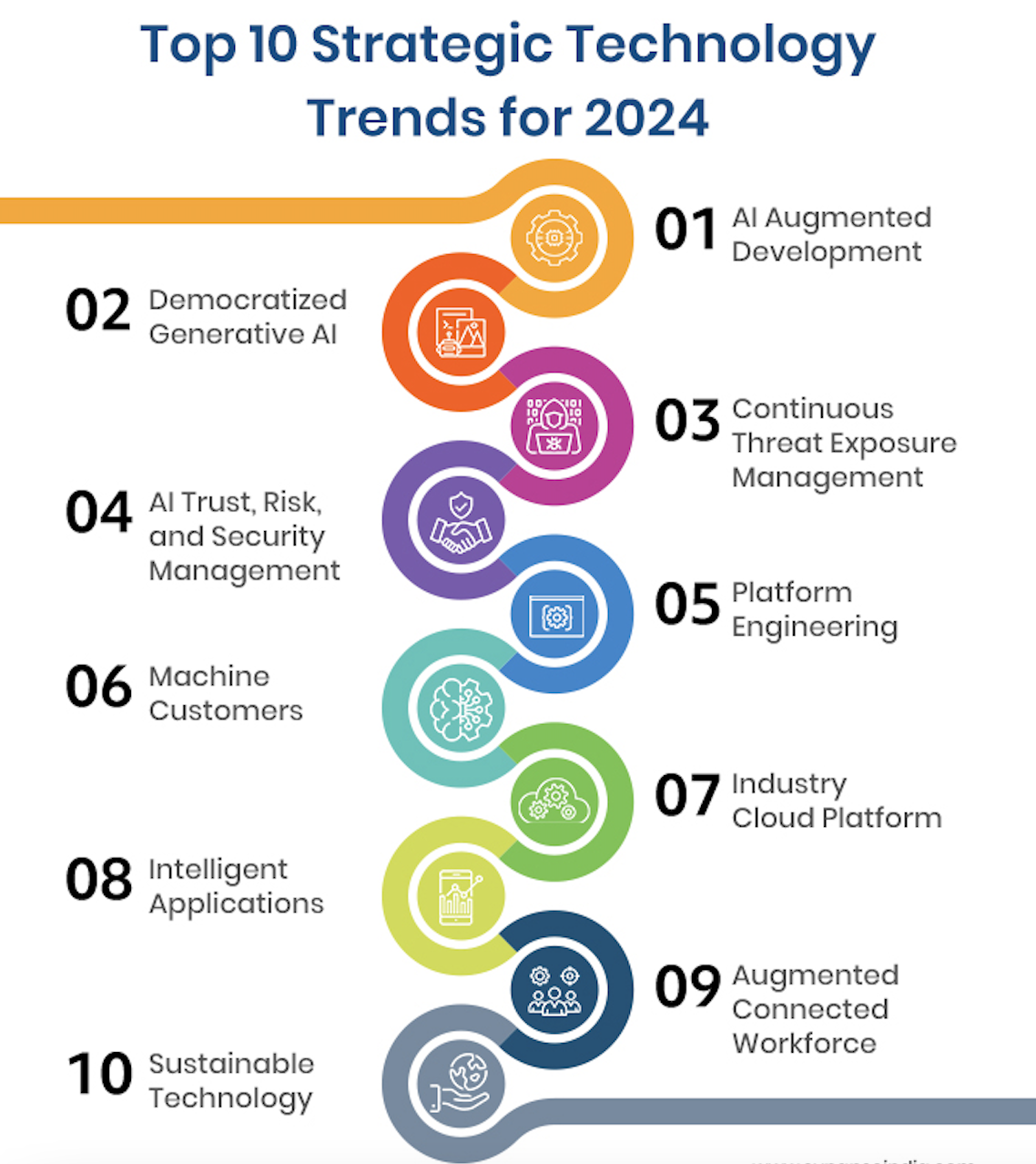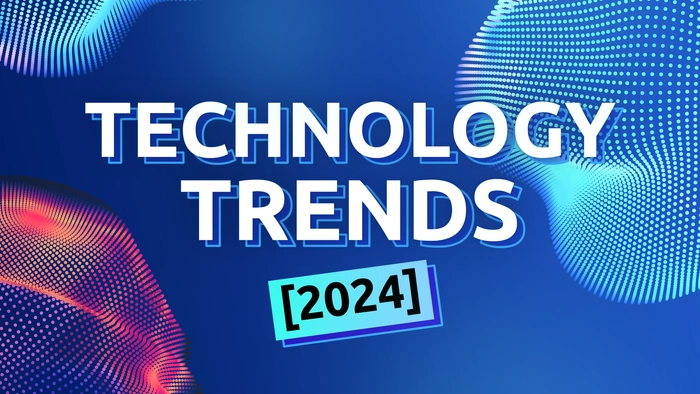Introduction
In the ever-evolving landscape of technology, staying updated with the latest trends and advancements is crucial. As we move further into the 21st century, several emerging technologies are poised to redefine industries, transform economies, and reshape the way we live and work. In this blog post, we'll delve into some of the top tech trends expected to make waves in 2024 and beyond.

1. Artificial Intelligence (AI) Advancements:
Artificial intelligence continues to push boundaries, with breakthroughs in natural language processing, computer vision, and reinforcement learning. AI-driven applications are becoming increasingly integrated into various sectors, from healthcare and finance to transportation and entertainment. With continued research and development, AI is set to revolutionize how we interact with technology and automate complex tasks.
2. Quantum Computing:
Quantum computing holds the promise of solving problems that are currently intractable for classical computers. By harnessing the principles of quantum mechanics, quantum computers have the potential to revolutionize fields such as cryptography, optimization, and materials science. Although still in its early stages, ongoing research efforts are expected to lead to significant advancements by 2024, paving the way for practical applications in various domains.
3. 5G Technology:
The rollout of 5G networks is driving a new era of connectivity, offering faster data speeds, lower latency, and greater capacity. This next-generation technology is set to unlock opportunities in areas such as Internet of Things (IoT), autonomous vehicles, augmented reality (AR), and virtual reality (VR). As 5G infrastructure continues to expand globally, we can expect to see a proliferation of innovative applications and services.
4. Edge Computing:
Edge computing is gaining traction as organizations seek to process data closer to the source of generation. By decentralizing computational resources, edge computing reduces latency and bandwidth usage, making it ideal for applications requiring real-time processing and analysis. From IoT devices to autonomous systems, edge computing is poised to enable a new generation of intelligent and responsive technologies.
5. Biotechnology and Genomics:
Advancements in biotechnology, including gene editing techniques like CRISPR, are driving transformative changes in healthcare, agriculture, and environmental conservation. Precision medicine, personalized therapies, and genetically modified organisms (GMOs) are just a few examples of how biotechnology is reshaping our understanding of biology and revolutionizing various industries.
6. Renewable Energy Technologies:
With the growing urgency of addressing climate change, renewable energy technologies are gaining momentum. Innovations in solar, wind, and energy storage are driving down costs and increasing efficiency, making renewable energy sources more competitive with fossil fuels. As the transition to clean energy accelerates, we can expect to see significant investments in renewable infrastructure and grid modernization.
7. Blockchain and Decentralized Finance (DeFi):
Blockchain technology extends beyond cryptocurrencies, offering opportunities for decentralized finance (DeFi), smart contracts, and supply chain management. DeFi applications are democratizing access to financial services, while blockchain-based solutions are enhancing transparency, security, and efficiency across various industries. As the blockchain ecosystem continues to mature, we anticipate further innovation and adoption in decentralized technologies.
8. Advanced Robotics:
Robotic technologies are becoming more sophisticated, with advancements in mobility, dexterity, and autonomy. Collaborative robots (cobots), autonomous drones, and self-driving vehicles are revolutionizing industries ranging from manufacturing and logistics to healthcare and agriculture. As robots become more integrated into our daily lives, they will play a crucial role in enhancing productivity and efficiency.
9. Augmented Reality (AR) and Virtual Reality (VR):
AR and VR technologies are blurring the lines between the physical and digital worlds, offering immersive experiences across gaming, entertainment, education, and training. With improvements in hardware and software, AR and VR applications are becoming more accessible and compelling. From interactive storytelling to virtual collaboration, these immersive technologies are transforming how we engage with information and interact with each other.
10. Cybersecurity Solutions:
As digital threats become more sophisticated, cybersecurity remains a top priority for organizations and individuals alike. AI-powered cybersecurity tools, zero-trust architectures, and quantum-resistant encryption are among the emerging technologies being deployed to mitigate cyber risks. With cybersecurity threats evolving constantly, proactive measures and innovative solutions are essential for safeguarding data and infrastructure.
Conclusion:
The tech trends outlined above represent just a glimpse into the future of technology in 2024 and beyond. From AI and quantum computing to renewable energy and cybersecurity, these advancements have the potential to shape our world in profound ways. As we embrace these innovations, it's essential to consider the ethical, social, and environmental implications and work towards harnessing technology for the collective good.
In this era of rapid technological change, staying informed and adaptable is key to navigating the opportunities and challenges that lie ahead. By embracing innovation responsibly and fostering collaboration across disciplines, we can leverage technology to create a more sustainable, equitable, and prosperous future for all.
*Let's embrace the future, one innovation at a time.*

